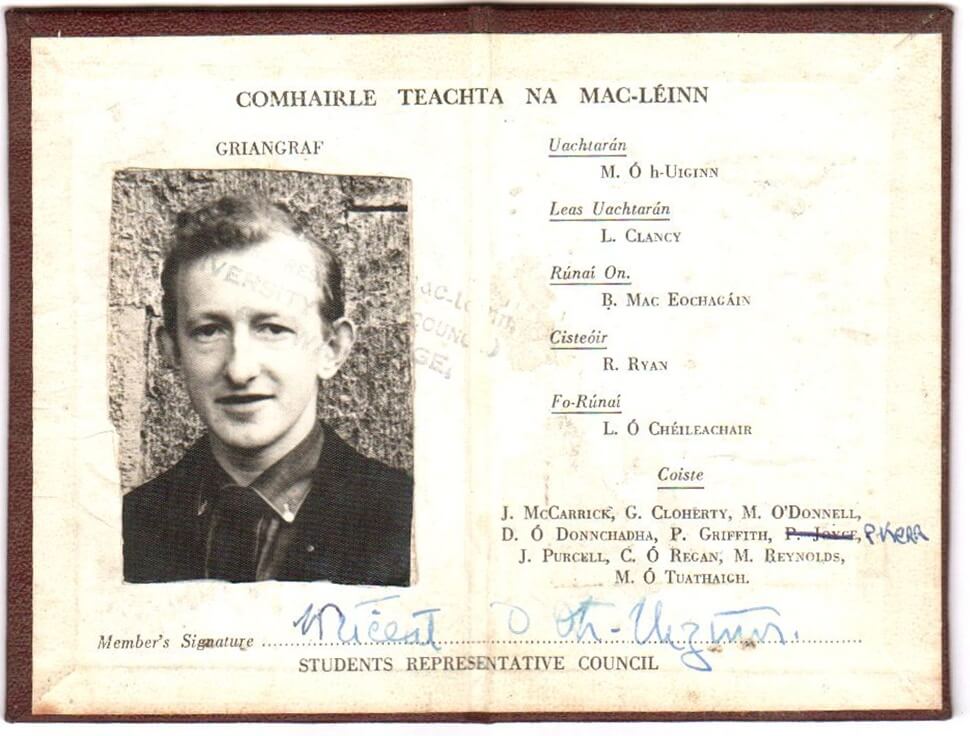
By Conor Brummell
Ahead of the Students’ Union Elections in NUI Galway, SIN contacted Su-Ming Khoo and Allyn Fives, two Sociology and Political Science lecturers in the University, to ask them about the importance of students being involved in politics. Here’s what they had to say about the value of the elections, unions in general and about students being involved in political campaigns around campus and further afield.
What’s the value in having Students’ Unions in colleges?
Su-Ming Khoo: The college represents a lot of different constituencies where students are very much part of the rationale of why the college exists in the first place. Having a mechanism within the college where opinions can be heard and students can get involved is extremely valuable to third level institutions.
How successful do you think the Students’ Union have been with their national political campaigns, such as lobbying against rent increases, campaigning for marriage equality and for abortion rights?
Su-Ming Khoo: It is important that students can make their efforts and opinions known about the unaffordability of rising rent prices. It is worthwhile that students engage in campaigns, say surrounding rent, as they hugely impact their success in the University and their ability to stay in University and study as a result. With things like the abortion and the marriage equality referendums, and channelling student participation in matters of social and legal reform affecting society, I think the Students’ Union has been effective in mobilising different bodies of student opinion to participate in the wider political and social landscape. It’s about students being more active within society and educating themselves on what the vote is, and what sort of country they want to live in. Just to take part, shape the conversation and be part of the conversation.
Do you think for this reason it is important for students to be involved in the Students’ Union and be politically involved, more so?
Su-Ming Khoo: Not every part of being involved in the Students’ Union is about being politically well versed. I think the Students’ Union does have a very big impact on how the student gains their political education, their experience and their knowledge. They also provide a learning experience in how to participate in politics and how to run politics. So yes, there is that. The Students’ Union is also more broadly important for other social and cultural activities that are just about making student life richer and more interesting around campus.
Do you think the power of Unions in general are being eroded?
Su-Ming Khoo: Power isn’t just something that disappears by accident. Power is a field of play where one person’s, or force’s, loss of power is another force’s gain of power. It is not about losing power, eroding power, but about the power changing. I think Union power in general is changing in society. It isn’t just simply about representing constituency’s voices, but it has become much more permeated by other types of management, entrepreneurial education, culture and values of business and entrepreneurism, that is different than it was in the past.
Allyn Fives answered a separate set of questions that focused on student ideals and what they should represent.
What should student representatives represent? Should they represent the interests of other students or should they be looking outward at the world and, for example, striving to remedy injustice?
Allyn Fives: It’s possible for elected representatives to serve the interests of their electors while going against their wishes (for example, because voters do not know what is in their best interests). Representatives may also have responsibilities to people other than their electors. The word ‘representative’ suggests a very narrow role: to act in ways that are authorized by voters and to help bring about what voters want. The problem is that this may lead to difficult decisions, even moral dilemmas. For example, was Angela Merkel right to do what she did to help desperate refugees, even if doing so may require German citizens (her electors!) to make sacrifices themselves?
Should we expect students to be idealistic and politically radical?
Allyn Fives: The idea that students are or should be politically active, and even radical, goes back further in time than the 1960s. Student protests across Europe and North America at this time seemed to, for some people, make sense of the idea that students as well as academics have a special opportunity and responsibility to disclose the truth that those in power would rather remain hidden. This idea that students have a responsibility to expose lies, in particular the lies of the powerful, brings us some distance from the idea that representatives are there simply to promote the interests of their electors. We must also acknowledge that not everyone accepts that truth is there, waiting to be discovered. Trump, and other populists, would have us doubt this.
If students (and student representatives) are expected to be idealistic, how ought they respond to those who do not share those ideals?
Allyn Fives: It is arguable that when we are faced with a difficult moral choice, what makes it difficult is that there is more than one right answer, and that we will have to choose between them. If students are campaigning to bring about changes in government policy, this will involve taking a stand on such a moral dilemma. There will be others who take a different stand, and each can believe they have morality on their side. This raises many questions, and just one of them is whether we are required to listen to those who have made a different moral decision to us. If there will always be some who disagree with us, we should strive to engage them in discussion, and be open to changing our own mind.